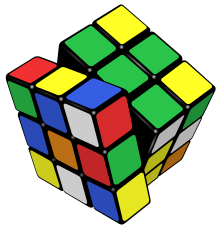
Back جبر مجرد Arabic Álxebra astrauta AST Дөйөм алгебра Bashkir Абстрактная алгебра Byelorussian Абстрактная альгебра BE-X-OLD Абстрактна алгебра Bulgarian বিমূর্ত বীজগণিত Bengali/Bangla Apstraktna algebra BS Àlgebra abstracta Catalan جەبری پەتی CKB

In mathematics, more specifically algebra, abstract algebra or modern algebra is the study of algebraic structures.[1] Algebraic structures include groups, rings, fields, modules, vector spaces, lattices, and algebras over a field. The term abstract algebra was coined in the early 20th century to distinguish it from older parts of algebra, and more specifically from elementary algebra, the use of variables to represent numbers in computation and reasoning. The abstract perspective on algebra has become so fundamental to advanced mathematics that it is simply called "algebra", while the term "abstract algebra" is seldom used except in pedagogy.
Algebraic structures, with their associated homomorphisms, form mathematical categories. Category theory gives a unified framework to study properties and constructions that are similar for various structures.
Universal algebra is a related subject that studies types of algebraic structures as single objects. For example, the structure of groups is a single object in universal algebra, which is called the variety of groups.
- ^ Finston, David R.; Morandi, Patrick J. (29 August 2014). Abstract Algebra: Structure and Application. Springer. p. 58. ISBN 978-3-319-04498-9.
Much of our study of abstract algebra involves an analysis of structures and their operations
© MMXXIII Rich X Search. We shall prevail. All rights reserved. Rich X Search